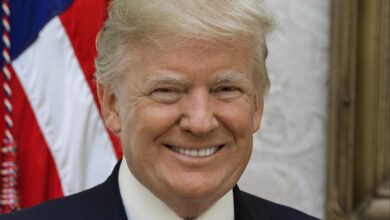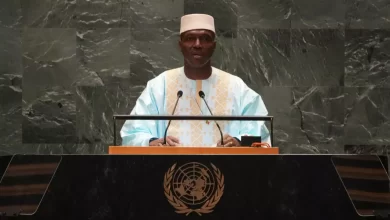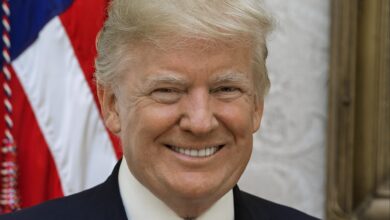Kamala Harris Poised For Potential Victory In U.S. Presidential Race

As the U.S. presidential election approaches on November 5, 2024, the race between Vice President Kamala Harris of the Democratic Party and former President Donald Trump of the Republican Party has become increasingly tight. The latest opinion polls show Harris holding a slight lead over Trump, thanks to a boost in ratings following her strong performance in the recent presidential debates. With just weeks remaining until the election, Harris is making significant strides in a contest that could lead to a historic moment in American politics.
Since entering the race to replace President Joe Biden, Harris has seen a steady rise in the polls. Initially, Trump had a five-point lead over Harris, and many believed that he would secure a victory. However, Harris quickly closed that gap, and now, according to most polls, she is leading by approximately five percentage points. This momentum has fueled speculation that Harris could maintain her lead and become the next president of the United States.
A win for Harris would mark several groundbreaking achievements. She would be the first woman to serve as president, as well as the first African-American and Asian-American to hold the position. Already a trailblazer as the first female Vice President, Harris could continue to make history if she wins the election.
Several factors are contributing to Harris’ lead, many of which have to do with the dynamics of American politics and the specific challenges facing Donald Trump. The U.S. political landscape is shaped by interest groups, powerful institutions, and key stakeholders that often have an outsized influence on electoral outcomes.
One of the most significant forces in American politics is the so-called “Deep State,” a term used to describe the vast network of the military-industrial complex, intelligence community, and other institutions that guard the country’s global influence. While these groups typically avoid overt involvement in elections, they have a vested interest in preserving America’s global standing. Trump’s statements about scaling down U.S. military involvement abroad and reducing spending on NATO have alarmed many in these circles. His previous run-ins with top military officials and defense contractors like Lockheed Martin and Raytheon have also created tensions. Consequently, many believe that the “Deep State” is quietly backing Harris to prevent a Trump victory, as they view him as a threat to U.S. global dominance.
The American foreign policy establishment is another factor working in Harris’ favor. During his presidency, Trump alienated key U.S. allies, including Germany, France, and the U.K., with his erratic foreign policy decisions and often undiplomatic conduct. The influential policymakers at Foggy Bottom, the U.S. Department of State’s headquarters, are unlikely to support a Trump return to the White House. Many prefer Harris, viewing her as a more stable and predictable candidate who would uphold traditional U.S. alliances and diplomatic norms.
In the U.S., the media plays a critical role in shaping public perception and influencing elections. Major newspapers such as The New York Times, The Washington Post, The Wall Street Journal, and The Los Angeles Times are unlikely to endorse Trump. These outlets value principles such as ethics, decency, and accountability, areas where Trump has faced significant criticism during his time in both public and private life. As endorsement season approaches, about 60% of mainstream media organizations are expected to throw their support behind Harris, which could further boost her chances of winning.
Other influential American institutions, including Wall Street and the legal establishment, also find themselves at odds with Trump. His controversial business dealings and legal challenges, including his numerous lawsuits and allegations of impropriety, have made him a divisive figure. Many in these sectors see a return of Trump to the White House as destabilizing and are more inclined to support Harris.
Trump himself is a polarizing figure, and his personality traits have alienated a large portion of the American electorate. Known for his erratic behavior, egotism, and divisive rhetoric, Trump faces significant challenges in attracting broad-based support. Many Americans, including those who may not be enthusiastic about Harris, are motivated to vote against Trump rather than for Harris. This dynamic could work in Harris’ favor, as voters seek to prevent another Trump presidency.
While Harris’ rise in the polls is promising, the race is far from over. The remaining weeks leading up to the election will be crucial, and both candidates will continue to campaign aggressively. However, if Harris does secure a victory on November 5, it will not only be due to her own strengths but also because of the widespread opposition to Trump from key sectors of American society.
The outcome of this election could usher in a new era in U.S. politics, with Harris poised to make history as the first female president. As the campaign continues to unfold, all eyes will be on the November 5 election, a pivotal moment in American political history.



